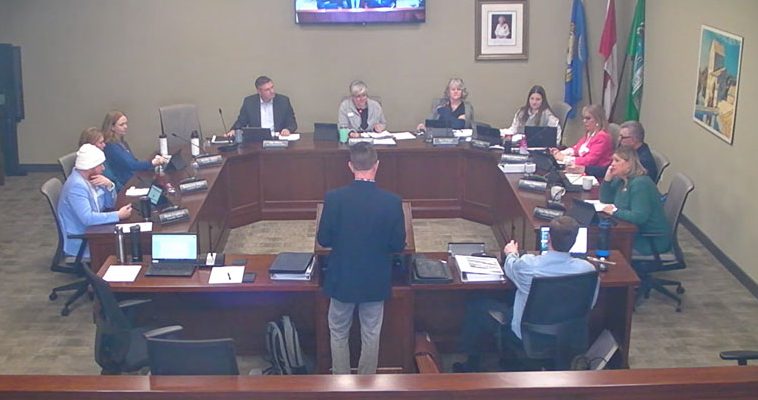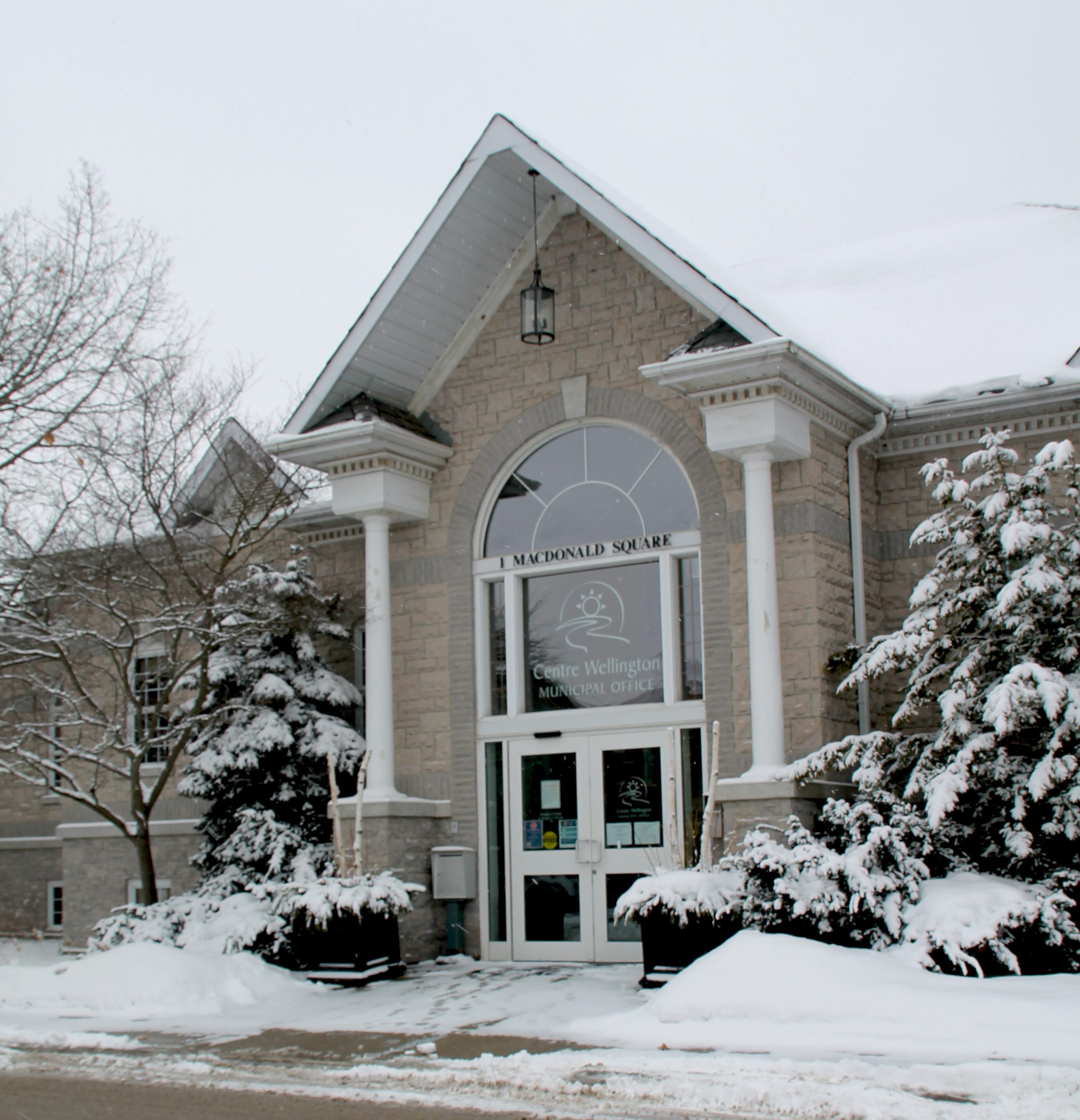ELORA – It was a marathon meeting for Centre Wellington councillors on Feb. 6, as staff presented the 2023 draft budget during the day and council listened to delegations in the evening.
CAO Dan Wilson explained that originally, the budget came in with a 6.09 per cent increase for taxpayers, but staff whittled away $366,635 to come in at 3.48%.
That translates to an additional $45 on the tax bill of a home assessed at $384,000.
The township received more than anticipated from the Ontario Community Infrastructure Fund and the Ontario Lottery and Gaming Association and used this to cover $158,000 of the budget.
The township also benefitted from high interest rates, seeing $50,000 from investments it hadn’t anticipated, Wilson said.
In all, the budget includes $49.3 million in operating costs, $35.4 million in capital projects, a $6.4 million water budget, and a $7.8 million wastewater budget.
Finance director Adam McNabb told council that a public survey conducted in December indicates roads and bridges and parks and recreation facilities are the top two priorities for respondents, with a tie for third place between fire and rescue and urban forestry.
“Their preference was increasing taxes and user fees as opposed to cutting services,” he said.
The budget includes nine new staffing positions and expands the scope of five existing staff from part-time to full-time – all of which add to the operating budget.
“This is mostly driven by growth,” said Mayor Shawn Watters.
When the delegations began, John Scott of Green Lanes lobbied for lowering speed limits in Centre Wellington to make roads safer for cyclists and pedestrians.
Scott said Green Lanes is working with three public schools this year – Victoria Terrace, Elora Public School and St. Mary’s Public School – to encourage students to walk or ride their bikes to school.
He noted “research has indicated that the number one factor in increasing active transport is safe and connected infrastructure; not culture, climate or topography, but safe infrastructure that goes somewhere,” Scott states in his written submission.
“We are asking (that) it should go to schools first.”
Dr. Sarah Gower, a family physician and Centre Wellington health professional recruitment lead, told council the situation at Groves Memorial Community Hospital is becoming dire.
Groves uses local family doctors to care for its patients and between office hours and after hours, it is becoming untenable, she said.
And with growth and new residents in the community, the number of people without a family doctor is growing, she said.
And that is impacting the hospital as about half of patients seen in hospital are “unattached” and don’t have a family doctor.

Screenshot from Feb. 6 council meeting.
Groves is now hiring hospitalists for week-long shifts to care for these unattached patients. It is bringing in emergency doctors to cover the emergency department and is actively seeking family doctors to settle in this area.
“We need to subsidize their housing,” Gower said, adding these doctors have trouble finding a place to stay for a week, never mind consider moving here.
The township currently pays about $20,000 to the hospital for these kinds of efforts.
“Are you asking for more?” asked councillor Barb Lustgarten-Evoy.
“It’s such an evolving thing,” said Alison Armstrong, health care recruiter for Wellington Health Care Alliance, who joined Gower at the podium.
“How do we bring people into this community? Housing and accommodation is a huge challenge. In the next year we may have to up our ask.”
Armstrong said the hospital can offer work-life balance, free parking, and a state-of-the-art hospital to work from.
And it is offering temporary accommodation, gift baskets and local experiences to further lure doctors here.
“It sounds frivolous, but we are competing with everyone for doctors,” she said.
Both the Fergus and Elora BIAs presented their budgets to council at the meeting, with the Fergus BIA seeking a 6% levy increase and Elora seeking 7%.
Garbage collection is something both groups were seeking help with from council.
The county has moved to garbage collection in the two downtowns to every-other week and that is posing problems for businesses, especially restaurants, as vermin and odours are becoming a problem.
They have resorted to private garbage collection on the alternate weeks, but that’s costly.
Councillor Bronwynne Wilton asked Watters if council could initiate discussion on this with the county.
“Yes, and we will,” Watters said. “The downtowns are changing and service needs to be increased.”
Former councillor Stephen Kitras also delegated to council, urging them to start a finance advisory committee made of members of the public, to offer input at the beginning of the budget process rather than at the end.
Kitras also urged council to reign in operating costs by reigning in new hires.
“Only do those (staffing positions) that are legally required,” he said. “Otherwise review adding more staff.”
Kitras thought better than building a new operations centre, which is in the works, council would be wise to share space with Wellington County where possible and use the savings for attainable housing.
“I don’t want my tax dollars to subsidize developers,” he said.
The final delegate was Millicent Gordon, spokesperson for the Centre Wellington Black Committee, who is hoping council could give them $3,000 to hold two events during Black Heritage Month.
The group has organized a Mobile Museum that highlights Black inventors to be held at John Black Public School on Feb. 16. With assistance from the Upper Grand District School Board, that event is a go.
But the group has two other events tentatively slated for Feb. 18 and Feb. 25 at the Brew House called Awakened Voices and it needs funds to pay the performers, Gordon said.
“We want a great, vibrant event but we have to pay the artists,” she said.
“We believe it will enrich people’s lives and be a great source of entertainment.”
Councillors flagged some items for further discussion but reached no decisions on Monday.
Budget discussions were to resume on Feb. 8.




